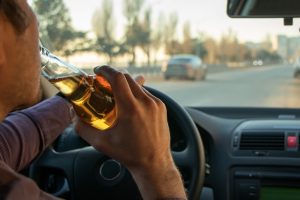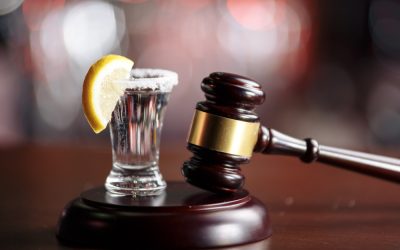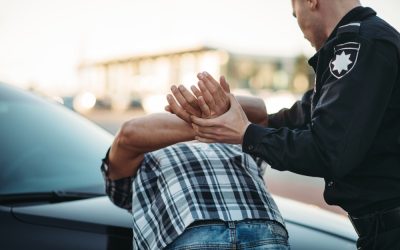
Driving under the influence of drugs or alcohol is illegal in California, whether or not the motorist is on public or private property. DUI laws in the state have evolved over time to prohibit drivers from operating a vehicle while impaired in any location.
What Is Considered Private Property in California?
The subject of private or public property often arises during DUI cases. Private property is owned by an individual, organization, or other non-governmental entity. Some examples where a person may be charged with a DUI on private property include:
- Parking garages
- Private driveways
- Off-roading on private land
- Restaurants and shopping parking lots
Public property consists of land owned by the government or collectively by the population of the state. In the past, the California Vehicle Code made it illegal to drive while intoxicated on highways and areas that were open to the public. However, in 1982 the law was amended to apply to any location.
How Does California Define a DUI (Driving Under the Influence)?
Driving under the influence (DUI) is a serious crime in California. The simple consumption of alcohol and driving is not a crime in itself. However, operating a vehicle with a BAC (blood alcohol concentration) of 0.08 or more is illegal.
A person’s BAC is dependent on a number of factors, including:
- The weight of the individual
- Whether or not the person took any medications
- How much and when a person last ate
- How much water they have consumed while drinking
- The number of alcoholic drinks consumed
- How quickly any alcoholic beverages were consumed
- The gender of the person assigned at birth
In addition, a person can be charged with a DUI if they are found to be under the influence of drugs. California law prohibits impaired driving through the use of illegal drugs, prescribed medications, or marijuana. Illegal drugs can consist of substances like heroin or cocaine, while prescribed medications may include over-the-counter sleep aids.
How Do California DUI Laws Apply to Private Property?
The issue of private property and DUI laws can be complex. The practical interpretation of the above laws allows police officers to enforce DUI laws on lands and roads other than a highway. In fact, a person could be off-roading or driving around a private parking lot.
The private land or road must meet some criteria. For example, private land must be accessible to the public. In addition, the land or road must not be within the owner’s immediate control.
Motorists may be charged and arrested for a DUI outside a nightclub, restaurant, store, or any number of privately owned organizations. If you have been arrested for driving under the influence on private property recently, a DUI defense attorney in California may be able to help. Contact a Los Angeles DUI Attorney to discuss the details of your case.
Are the DUI Penalties the Same if You Are Arrested on Private Property?
The location of the DUI arrests has no effect on the penalties associated with the crime. Driving under the influence is a serious violation in California, whether or not it is the first offense. A person charged with a DUI is subject to strict punishment.
California DUI Penalty Overview
DUI penalties can vary widely. The legal ramifications of driving under the influence of drugs or alcohol depend on the circumstances of the events that led to an arrest, whether or not a chemical test was refused, and the age of the offender.
Some DUI penalties consist of the following:
- The suspension of a driver’s license
- Higher insurance costs
- Lengthy educational programs to win back a suspended license
- Time in prison
- Hefty fines and court costs
In addition, an offender may be required to install an ignition interlock device. These devices are designed to prevent a car from starting if the driver has been drinking. It is a small breathalyzer that is installed in a car, forcing the motorist to blow into the device every time they go to drive.
DUI Penalties for a First-Time Offense
If a driver is charged with their first DUI, the penalties may be relatively small. A DUI charge typically generates an automatic license suspension upon arrest. For a first offense, a motorist may face the following consequences:
- A license suspension of 4 months or longer
- 3 to 5 years on probation
- 3 months or more required attendance at a DUI school
- Up to 6 months in prison
- Fines that can range from $3,600 to $15,649
Despite the relatively minor penalties, having a DUI conviction on record can be very damaging. Individuals may be prohibited from applying to certain types of employment. Vehicle insurance rates often skyrocket after a DUI conviction.
DUI Penalties for a Second Offense
When a driver commits a second DUI offense, the penalties increase drastically. For example, a second DUI offense requires the mandatory installation of an ignition interlock device on the offender’s vehicle. In addition, drivers may face the following:
- Fines and fees up to $4,000
- 3 to 5 years on DUI probation
- Time in prison up to 1 year
- License suspension of up to 2 years
- DUI school, typically 18 months to 30 months
First and second DUI offenses are charged as misdemeanors in California. If a driver is convicted of their third, fourth, or fifth DUI offense, it is considered a felony. A felony DUI will result in strict penalties and significantly impact an individual’s future prospects.
Third and Fourth-Offense DUI Penalties
Most DUI charges require the skills of an attorney. However, it may require the experience of a DUI defense attorney to mitigate the damage from a felony DUI arrest.
Third and fourth offense DUI penalties include:
- License suspension of 3 to 4 years or permanent license suspension
- A state prison sentence of up to 16 months
- Fines and fees up to $18,000
- The mandatory installation of an ignition interlock device
- Status as a convicted felon
- 3 to 5 years probation
- 30 months in DUI school
Contact an Attorney for Help
A Los Angeles DUI attorney has years of experience protecting the rights of those suspected of driving under the influence. Schedule a consultation today to discuss the best strategies to mitigate the damage to your freedom and reputation.






